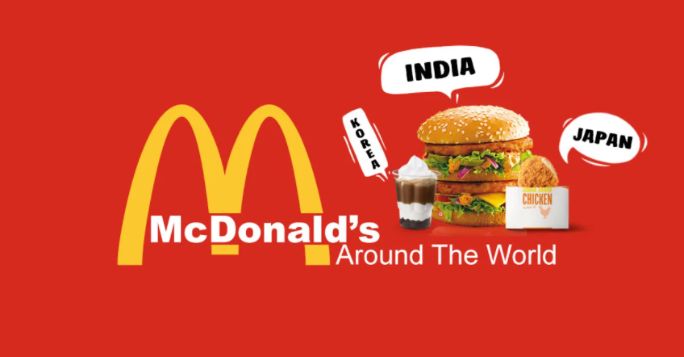
Is there a golden classic marketing strategy example that has served brands and businesses for years?
Well, no.
Successful businesses adapt their strategy constantly. The only way to survive and stay relevant is to embrace change.
It is driven by many factors, including the availability of new technologies, changing customer preferences, and transforming the competitive landscape.
Each crisis shows weak points of your business and opens new possibilities.
The global pandemic isn’t the only reason to rethink your marketing strategy, but a perfect incentive to finally start doing it regularly.
Let’s dig into it some more.
What is a Marketing Strategy?
A marketing strategy is a comprehensive business development plan including all issues related to increasing profits and sales. A good marketing strategy covers four main areas:
1. Market share: expanding the business or finding a perfect niche, getting more customers, increasing profits.
2. Manufacturing: the use of innovative technologies, the launch of new products, an increase in the volume of production, planning of the team’s work.
3. Organization: optimization of personnel management. For example, you can develop a clear hierarchy and define the responsibilities of each department.
4. Financial: all of the company’s goals are related to money. These can be a decrease in manufacturing costs, an increase in sales volumes, and an improvement in profitability.
Also, getting a marketing strategy is a way to identify priority business areas and plan activities. It allows you to:
- manage resources in the best way
- prevent possible marketing mistakes
- improve the efficiency of the company
The marketing strategy can cover a long period, up to 20-25 years. But in small and medium-sized businesses, planning is usually done for up to 3 years.
It is important to remember that a marketing strategy is not a step-by-step action guide. If necessary, it can (and must) be adjusted according to the circumstances.
But is having a marketing strategy really necessary? This is the data from research by CoSchedule
- the most organized marketers are 397% more likely to report success
- goal-setting marketers are 376% more likely to report success
- marketers with a documented strategy are 313% more likely to report success
Is it Time to Make Changes to Your Marketing Strategy?
The global pandemic shock is by far the biggest reason to rethink marketing strategy. We already know that the changed circumstances had an impact on the patterns of people’s behavior. Now we are more actively consuming content on the Internet, using online services for various purposes.
Analysis by GlobalData shows that 9 out of the top 10 global eCommerce companies (by revenue) experienced double-digit growth in 2020 as new consumer habits swayed in their favor.
However, the pandemic is not the only reason to think about adjusting strategy. Other signals might indicate that your marketing strategy is out of date:
- decreased income
- customer loss
- less public interest
Even if you don’t see any of these signs, it doesn’t mean that change is unnecessary. We strongly recommend updating your marketing strategy if you implemented it over two years ago. Most probably, your business was different back then.
The Main Drivers of Change in Marketing Strategy
1. Know Your Customers
After the pandemic, some of your clients’ habits changed, so take it into account. Over time, distancing will become the new normal. Social commerce is becoming a new reality. Users are chatting in groups on social media, discussing general issues, and even shopping on social media itself.
This pattern of behavior can be applied to business. For instance, shopping online together with friends will allow them to get the same joy as the usual shopping. Provide your customers with this opportunity.
2. Emerging Technologies
Let’s say your clients prefer not to make phone calls anymore but to use messengers. Start supporting them via WhatsApp. Give them that opportunity. They will be more willing to chat with you and more likely to make a purchase.
Modern technology makes it possible to choose clothes online almost as conveniently as in a regular store. Users can try on clothes using their virtual doubles to see if it suits them or not. Provide them with such an innovation. They would gladly buy more.
3. Learn from Your Competitors
Learn and analyze the best marketing strategies examples from your competitors to better understand the market. Market analysis is necessary to understand whether your product is needed at all and the general direction the market is moving to. Studying business media and networking will help you here.
4. Use Data to Adjust Strategy
Analyze your data. This will help you not only understand what improvements the product needs but also create more personalized promotions for customers. It might also be a good idea to interview customers. Many of them will be happy to tell you what they would like you to improve. This will help not only to make the product better but also increase the level of service.
5. Corporate Culture
It might seem that corporate culture is an internal affair of the company, which has nothing to do with marketing strategy. However, it directly affects how customers perceive your business. Ask your employees if they are proud to work for the company. Do they feel comfortable in the workplace? If not, ask how you can fix the situation. Happy employees will be sharing their happiness with clients.
6. Explore New Niches
Explore your adjacent markets for new opportunities. Perhaps a slight modification to the product will help you find a whole new audience. For example, if you are organizing tourist trips, you could pay more attention to local tourism. Its popularity has skyrocketed as a result of the closure of state borders around the world.
7. Risk Management
It is impossible to be ready for every crisis, but you need to make at least some preparations. Always have a Plan B for your company. The global pandemic has shown that radical change can come suddenly. Any business must be flexible and ready for change. Can you move all your sales online if needed? How about quickly reorganizing production to make goods that are in demand in the crisis? Think about it.
5 Marketing Strategy Examples to Inspire You
Different companies choose different factors that help them build marketing strategies. Some of them, such as Zoom, take advantage of the situation — global lockdown.
Others, such as Spotify or Netflix, basically create new markets. Another marketing strategy example might be risky campaigns, like the ones Red Bull does. Let’s take a look at some of the stellar marketing strategies adopted by brands.
1. Airbnb
It has grown globally, with a presence in 34,000 cities worldwide, thanks to social networks. In January 2015, Airbnb launched a social media campaign with the hashtag #OneLessStranger. It was a “global social experiment”.
The company asked Internet users to make random “acts of hospitality” to strangers. The results were posted on social networks with a hashtag.
What you can learn?
- Go experimental
- Be social
- Create a community around your brand
2. McDonald’s
In 2003, McDonald’s began selling McArabia flatbread sandwiches in its restaurants in the Middle East. Later it added a gourmet almond dessert range to the French market and McSpaghetti to its menu in the Philippines.

What you can learn?
- Be attentive to cultural peculiarities
- Think out-of-the-box
- Think local to go global
3. H&M
Did you know H&M annually increases the number of its branded clothing stores by 10-15%? One of the secrets of their successful global strategy is optimizing the online experience. With its user-friendly, mobile, and multilingual online store, H&M has made it easy for users from all over the world to shop online.

What you can learn?
- Communication should be omnichannel
- Be accessible
- Be aware of the trends
4. Spotify
The streaming platform Spotify has been able to transform the way people consume music. It introduced innovative marketing approaches and became the leader in streaming audio. The company introduced the continuous playback of music, playlists for any mood, and artificial intelligence that knows what kind of music the user will like.

What you can learn?
- Be innovative
- Look for new possibilities in established markets
- Use freemium mode to make users get used to your product
5. Harley Davidson
The brand always makes customers feel like they belong to a big family. People buying their bikes feel connected to other bikers. It’s like an inexplicable connection between all freedom-loving racers.
For instance, once the company sent out boxes of nothing but fresh air to some of the visitors of the motorcycle exhibition. More than half of those who got a mysterious black box bought a motorcycle immediately after receiving “the air of freedom.”

What you can learn?
- Be creative
- Get to know your client
- A perfect present should not always be expensive
Conclusion
Without a strategy, a company’s marketing efforts would be chaotic and ineffective. A marketing strategy helps to focus efforts in the right direction and optimize processes.
And for it to work, the strategy needs to be regularly reviewed and updated. Only in this case will it fulfill its main tasks: strengthening the brand’s presence in the market, increasing the company’s profits and competitiveness.
This would not be possible without having a presence on social media. But then again, mere social media presence is not enough.
Effective management, timely posting, and performance analysis are of the utmost importance. Try SocialPilot, the all-encompassing social media analytics & reporting tool that will be a reliable partner in this challenge.







